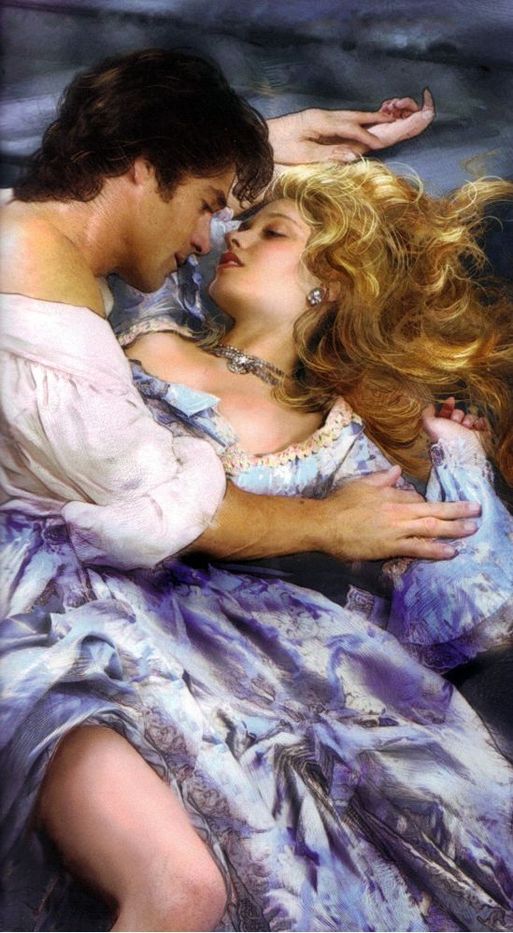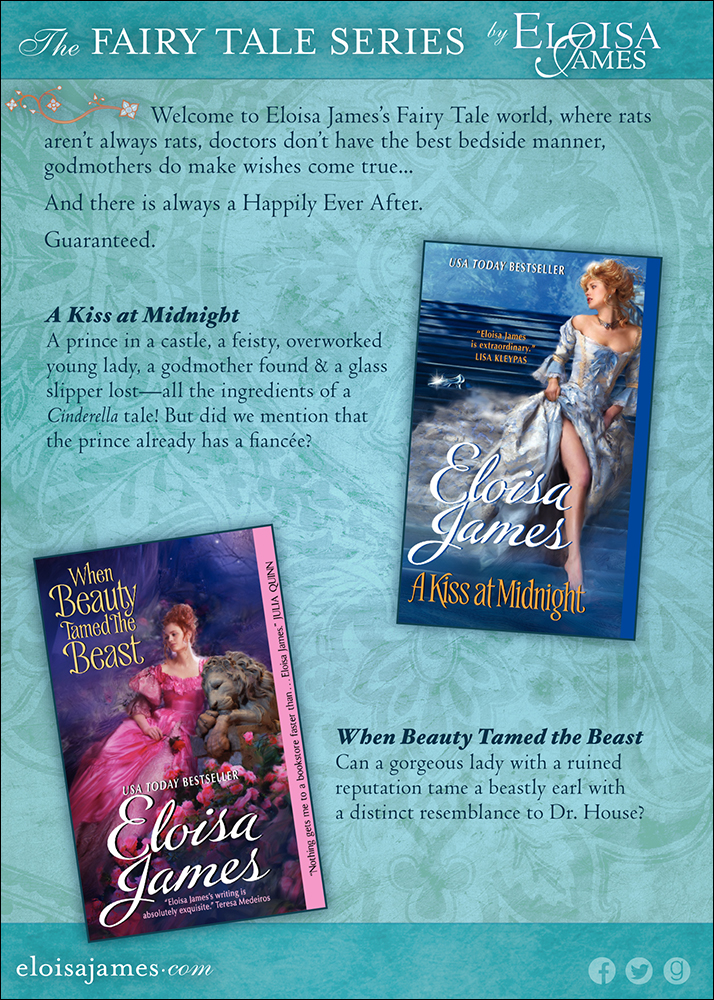
Bookcode: kiss-midnight
Fairy Tales Collectible Card
The covers of each of Eloisa’s series are grouped together into gorgeous collectible cards. In addition to this card for the Fairy Tales, there is a card for the Duchess Quartet, Desperate Duchesses (the Original Six), and the Essex Sisters.
Note: Collectible cards are no longer available.

Kiss-midnight: USA Today bestseller
#29 on the USA Today bestseller list.
Kiss-Midnight: PW bestseller
#14 on the Publishers Weekly bestseller list.
Kiss-midnight: NYT bestseller
#14 on the New York Times bestseller list.
Kiss Midnight: RITA Finalist 2011
2011 RITA Finalist for the Historical Romance category
Inside A Kiss at Midnight
- A Kiss at Midnight is based on the fairy story, “Cinderella.” My father, the poet Robert Bly, was always fascinated by fairy tales, and finally wrote the book Iron John (a rewriting of the fairy tale, “Iron John”), so in a sense it’s a family business. When my dad was working out the ideas behind the book, he talked compulsively about fairy stories. He loved to challenge my siblings and me to “explain” such stories in cultural terms–to rewrite them in a way that made them socially relevant. It was an easy step for me to move to rewriting stories myself.
- When I wrote Kiss, I was thinking about the rigid social structure in Regency England, and the effect it had on illegitimate children. I used three such “children” to explore various sides of the issue: Kate’s sister Victoria, Gabriel’s brother Wick, and the little girl who used to live in the castle, Merry. If you’re curious about Wick’s future, read my novella “Storming the Castle,” in which Wick gets his own happy ending.
- The story of Dido and Aeneas told in Virgil’s Aeneid is central to A Kiss at Midnight in several ways—because Gabriel longs to join the archeological exploration searching for Dido’s ancient city of Carthage, but also because I used the metaphor of Dido’s suicide to point to Kate’s resilience. Dido was the ruler of the great Tunisian city, Carthage. She and Aeneas fell in love, but he left her to found Rome, whereupon she made up a funeral pyre and threw herself on it. She was quite possibly a real historical figure, though it seems she likely killed herself to prevent a forced marriage, thereby staying loyal to her first (deceased) husband.
Mea Culpa, A Kiss at Midnight
- Katharine wrote me to point out that her (Greek) husband just confirmed that “didascalos” is Greek for teacher, not student. I got the word straight from MY (non-Greek) husband, who when confronted with this terrible truth, looked guilty and said: “pupil, teacher, it’s practically the same thing.” Snort.

